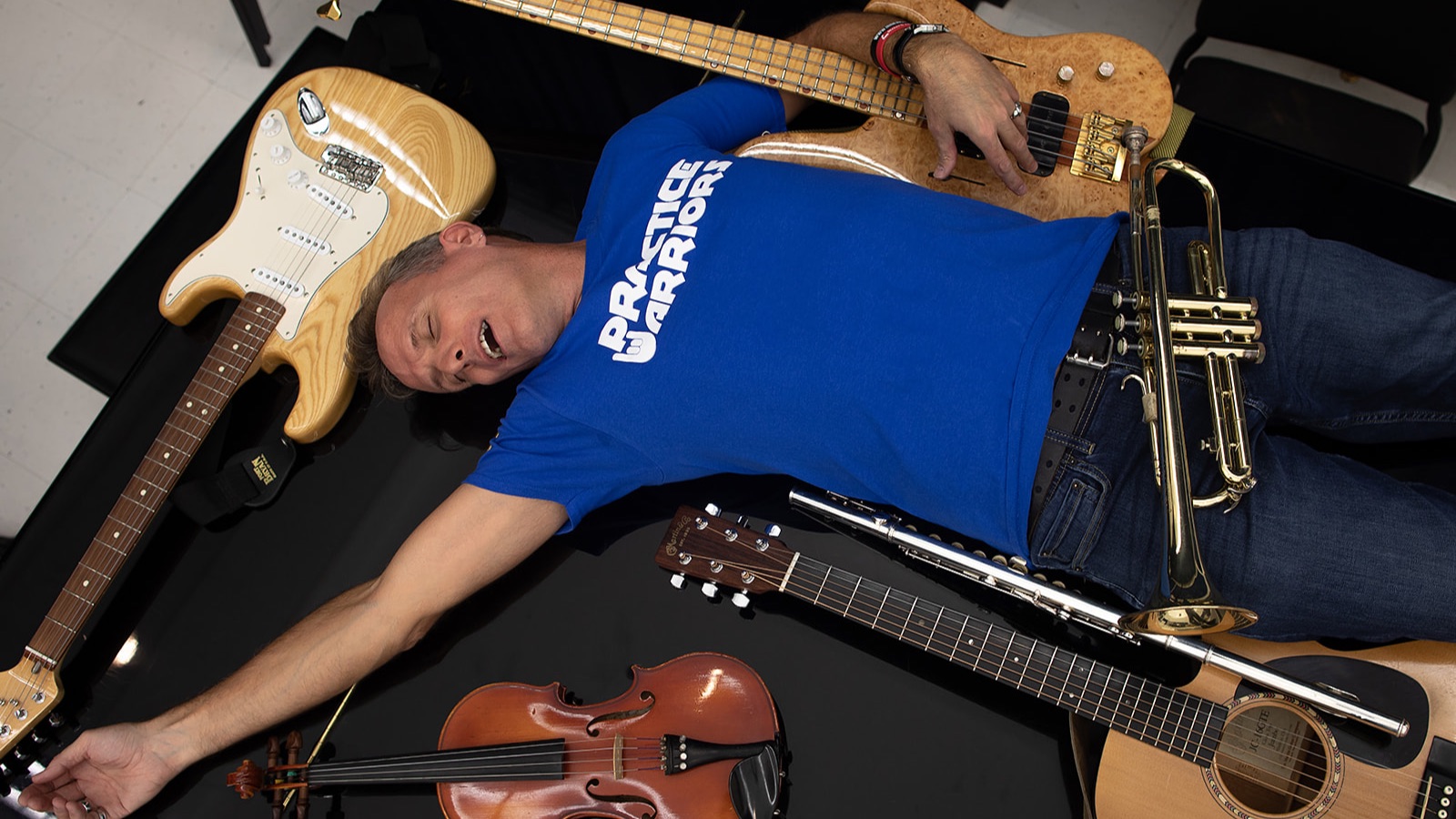The 3 'Fs' That Keep You From Practicing
Jun 27, 2023
Let’s face it: very few people on planet earth actually like practicing music!
There! I’ve said it! The “Practice Warriors Guy” just admitted that people don’t like to practice. Wow!
Stop the presses! Alert the media! We’ve got the scoop of the century!!
Sarcasm aside, perhaps I should change my name to Captain Obvious.
It’s funny that the things people don’t like about practicing music are the very same things they can use to get more motivated and inspired to practice. Gotta just love irony.
So, let’s look at the 3 ‘Fs’ that keep most people from practicing, and let’s see how we can turn these challenges around to make anyone into a Practice Warrior!
1. Failure
This one’s a biggie, isn’t it? Think about it; when you try to do something and you “fail", are you inspired to try it again? Oh sure, maybe one or two more times, but then you stop and say things like “I can’t do it” or “I have no talent” or other self-defeating thoughts.
Let’s just come right out and say it…there is no such thing as failure!! Failure is just an excuse to not exert yourself and expand your knowledge or skills.
If you think back on your life’s journey thus far, you have failed at literally everything in your life at one point. You couldn’t walk. You couldn’t talk. You couldn’t feed yourself. You couldn’t add. You couldn’t read. You couldn’t pass a test. You couldn’t find a job. You failed at communicating. You failed at…
…well, I could go on and on, but I don’t want to give you a complex!
Yes, you “failed” at all these things in your life, but then you overcame those “failures” with successes.
You couldn’t talk…until you did.
You couldn’t add numbers…until you did.
You couldn’t find a job…until you did.
Failure is just success delayed. Failure shows you exactly what you need to focus your energies on for self-improvement. Failure is a gift!
So, when you “fail” at something while playing or practicing music, you are being shown your next musical challenge. You are being invited to improve your skills. It’s only at this point where you make the choice to either continue or stop practicing.
If you continue, you will succeed…eventually.
If you stop practicing, only then will you have failed.
This is easier to understand than implement, because failure leads to our second “F”.
2. Frustration
One could argue that it’s not so much failure that gets people to quit, but the deep feelings of frustration that come with taking on challenging tasks. Frustration short circuits our learning process by adding emotions and expectations into the mix. By truly understanding this, we can use these feelings to our advantage, rather than have them keep us from achieving our goals.
If you can tamper your emotions and expectations, then frustration immediately disappears. Frustration comes from your preconceived idea of how quickly you should be able to learn a specific task.
If you expect playing guitar to be easy and then realize it isn’t as simple as you thought, you get frustrated. When you get frustrated, you get emotional. When you get emotional, you make decisions not based on logic but on feelings.
BUT, if you expect playing guitar to be challenging and then it actually is challenging, then you don’t get frustrated. You knew up front that learning guitar would take time, so you don’t have some unrealistic timeline for when you should see improvement.
In other words, you relax into the learning process. Frustration disappears as soon as your expectations match reality.
It also helps to know that everyone who has ever played an instrument or dribbled a basketball or gave a speech or tied their shoes has experienced challenges. Misery does love company, you know!
If you can implement your knowledge of the first two ‘Fs’ into your practicing (and your life), than the third ‘F’ tends to disappear as well.
3. Fatigue
Most people think of being fatigued as being sleepy. However, fatigue is usually brought on by mental or physical exertion. Now, let’s add negative feelings of perceived failure and unrealistic expectations that lead to frustration, and you can see how any exertion will make you feel tired, drained, unmotivated, uninspired and downright fatigued!
Heck, even looking at your instrument and thinking about practicing could make you feel fatigued!
Thus, the best way to avoid feeling fatigued about practicing is to banish the negative thoughts about failure and frustration. This is done, again, by tampering expectations and welcoming challenges and frustrations in your practicing.
Fatigue ain’t a bad thing, either. Like with a good physical workout, I feel a bit drained and fatigued after I play my instrument, record a new song, prepare for an upcoming performance, practice a challenging piece of music or any musical activity where I’m pushing my comfort zone and abilities. This, to me, is good fatigue that is rooted in reality-based physical and mental exertion rather than fantasy-based negative and false beliefs.
As you can see, these same 3 ‘Fs’ that keep people from practicing can actually give you the drive you need to sit your butt down, work on your skills and be patient but productive on your musical journey. It’s about perspective, after all!
Stay connected with news and updates!
Join our mailing list to receive the latest news, blogs and updates from Practice Warriors. Don't worry, your information will not be shared.
IMPORTANT: Please check your "Spam", "Junk" or other folders for our email, as we will be sending you an email to confirm your address. Thank you!
We hate SPAM. We will never sell your information, for any reason.




